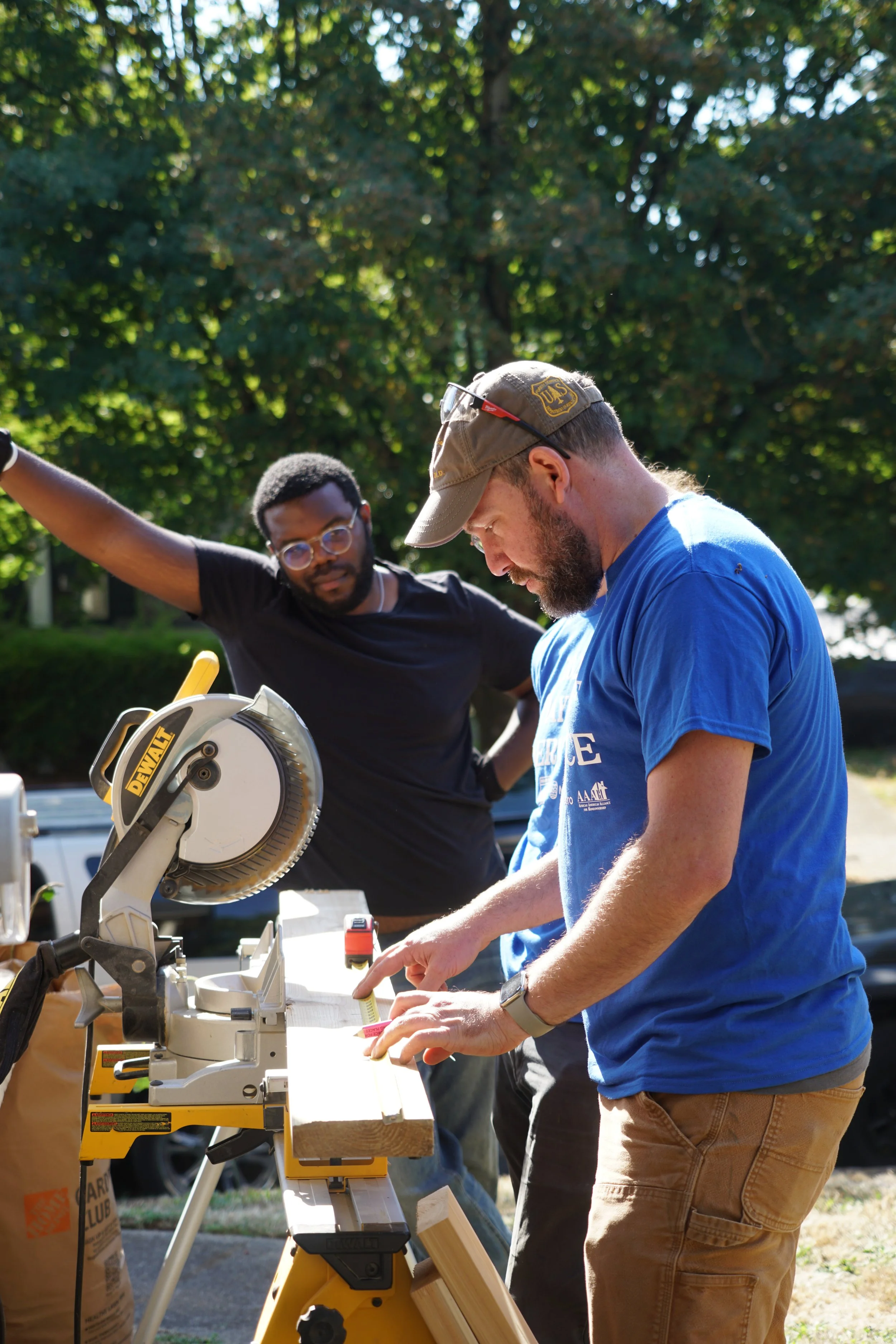What’s one of the most commonly encountered types of reused items in the United States? Cars! So, why do people reuse cars so frequently and willingly in a country where encouragement to purchase new items is everywhere? Are people buying used cars because they care deeply about avoiding the resource extraction required to make a new car? Is the climate crisis fueling the used car market? Hardly.
We're Celebrating Climate Legislation!
Housing is Climate Justice
It’s Earth Month! And since Earth is our one and only home, there’s no better time to talk about the strong connection between housing and climate justice. Healthy, decent, affordable, sustainable housing MUST be at the core of the climate transition. However, we’ve begun to see some challenges in this work.
Be a Piece of the Puzzle
Community is the Heart
Materials are the message. For nearly 25 years, we’ve championed waste diversion and reuse, taking in material donations from our community (thank you!) and circulating them back into the hands of builders, makers, and DIYers. Over time, we began to ask ourselves, how can we best serve people in our community?
Working Towards Climate Justice
People have been reusing and repairing things forever. Like, literally since the dawn of humankind. But over the past century, big business has taught most Americans that new is best, reuse is only if necessary, sharing is weird, and repair is just too difficult.
As a result, we consume and throw away more things now than ever before, depleting the Earth of precious resources, depriving people of precious land, and locating our ever-growing waste and pollution in ever-closer proximity to BIPOC communities and communities with low incomes.
For 24 years, ReBuilding Center has helped people re-learn that reuse and repair are not only possible, but they’re also joyous, self-sustaining, and political practices.
Making reclaimed materials and repair skills available and affordable creates economic resilience for people with low incomes, reduces the extraction of natural resources, and helps create an alternative economy that challenges the scarcity mindset that capitalism and racism rely on.
We fundraise with our community because we strive to keep our prices as low as possible, and we dream of a day when we’ve raised enough money in donations and memberships to allow us to just give away most of our materials. That would be amazing, and a significant example of the type of sharing economy that we are working toward. We're small, but we can help lead the way.
You can join us in making this dream a reality by shopping with us, donating materials to us, taking classes with us, volunteering with us, or becoming a ReBuilding Center member. Your gifts of time, talent, and financial resources will fuel our work toward climate justice. Thank you!
Earth Day? We can do better.
By: Jackie Kirouac-Fram, Executive Director
Today is Earth Day and, in honor of the day, I’ve spent some time reflecting on how terrible this “holiday” has become. There. I said it.
Over the past 20 years, Earth Day has evolved so far away from the movement its organizers envisioned as they worked alongside the civil rights movement in the late 1960s, borrowing tactics like civil disobedience, mass action, and a focus on the impact of environmental degradation on people, and particularly on Black people.
Those early organizers knew that climate justice is bound with racial justice. Racism upholds the extractive, exploitive elements of our current economic system, which prioritizes consumption and endless growth while ensuring that the outcomes disproportionately affect Black, Brown, and Indigenous populations.
Compare that to our era’s version of Earth Day, which has largely been hijacked by corporate entities cashing in on our guilt about climate change and what feels like an inability to do anything about it. Buy this metal lunchbox! Buy this green cleaner! But our climate crisis will not be solved by consumer product purchase choices, especially when a focus on consumption is actually at the root of the crisis.
So what can you do this Earth Day to step outside the mainstream and participate in the climate justice movement?
First, listen to this fantastic episode of How To Save A Planet, about the value of individual action vs. policy change and corporate regulation. (Spoiler: it’s all important!)
Second, consider what you can do, what changes you can make, and how you’ll talk to others about it. By talking to others about changes you’re making (eating less meat, biking more, installing solar, insulating your attic) you can multiply the limited impact of your actions by making them contagious.
Third, learn more about how climate justice is linked to racial justice. Some very smart people have written about this if you want to dig deeper, including Rev. Lennox Yearwood, Jr. of Hip Hop Caucus, and Elizabeth Yeampierre of the Climate Justice Alliance.
At ReBuilding Center, we see our work as providing countless opportunities for people to see how their individual actions (choosing to reuse or repair, instead of buying new) can have an impact on the climate crisis and racial justice. Our work marks one path toward an anti-racist economy that is based in sharing and abundance and equity, rather than the racist strategies of extraction and exploitation. This might feel like heavy stuff for a reuse organization, but it’s what guides our work internally. We envision a world in which reuse is the norm, people are valued over profit, and solutions to our most pressing challenges come from the communities most impacted. We try to live our version of Earth Day every day, with the support of our community of customers, material donors, students, volunteers, and members. We’d love for you to join us on this journey.










